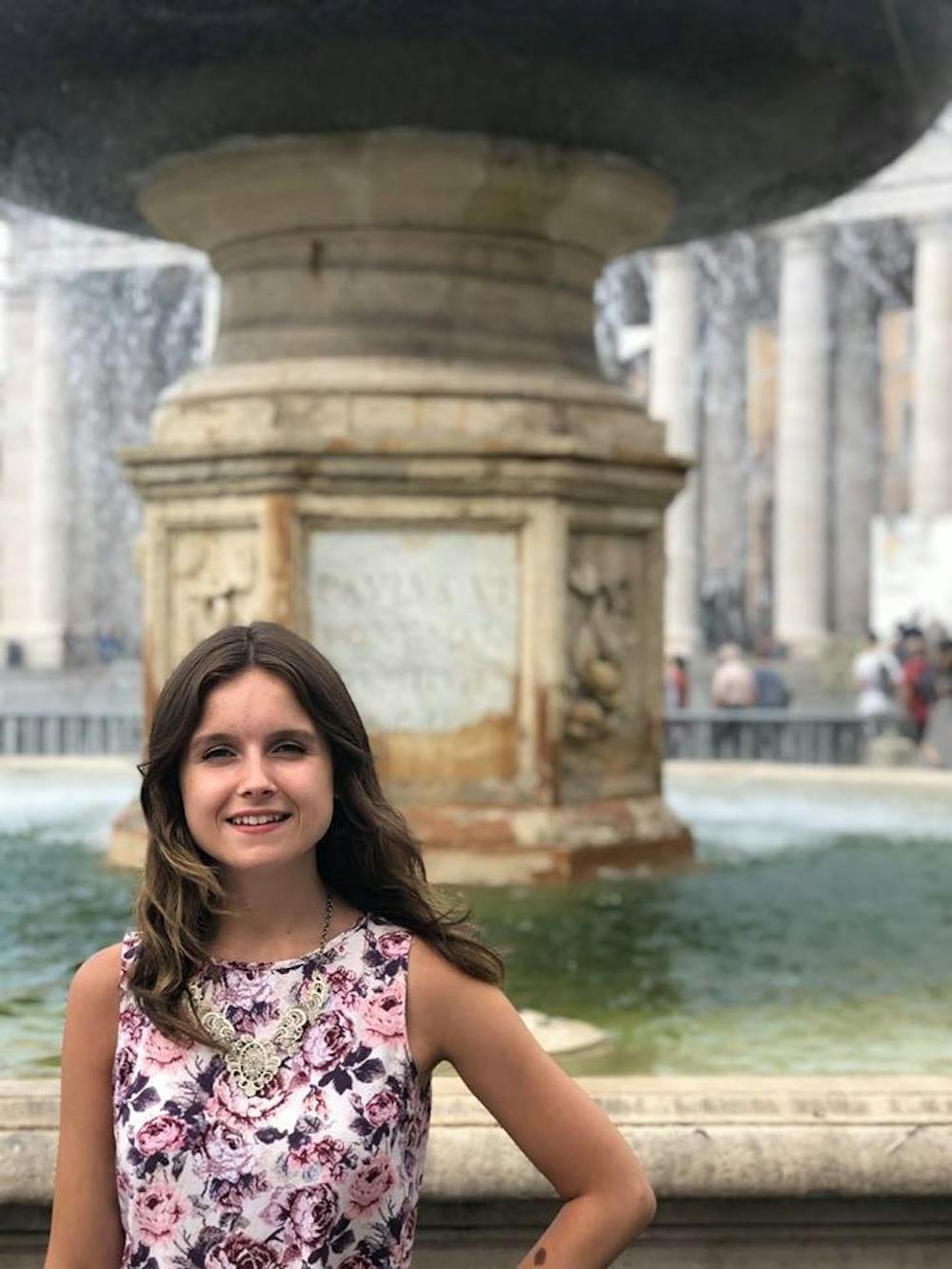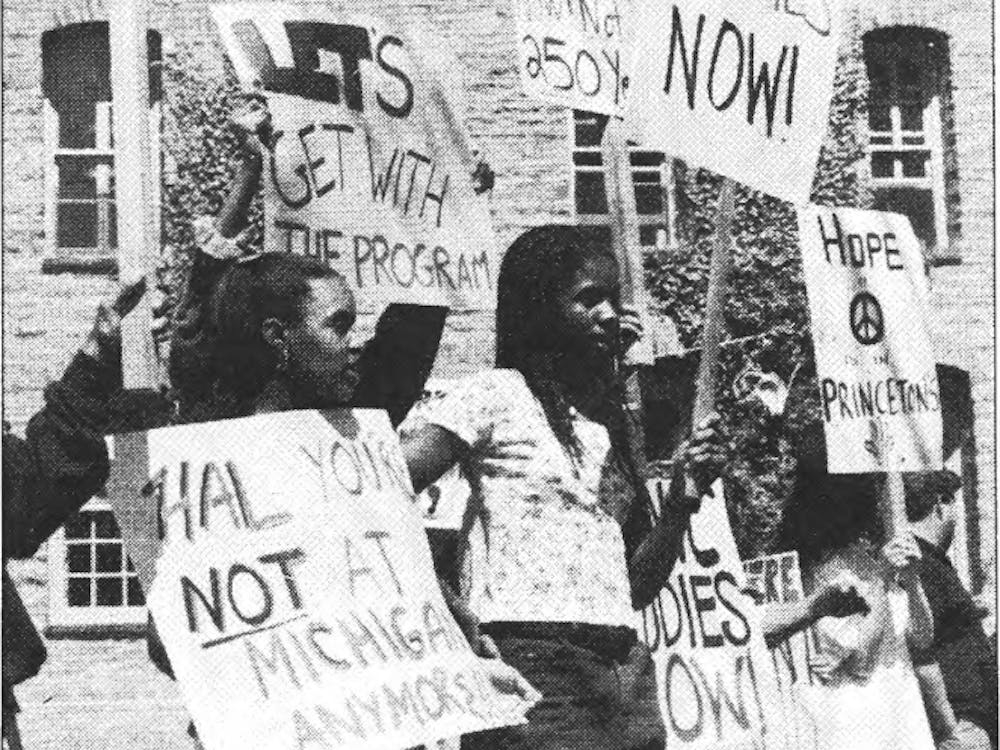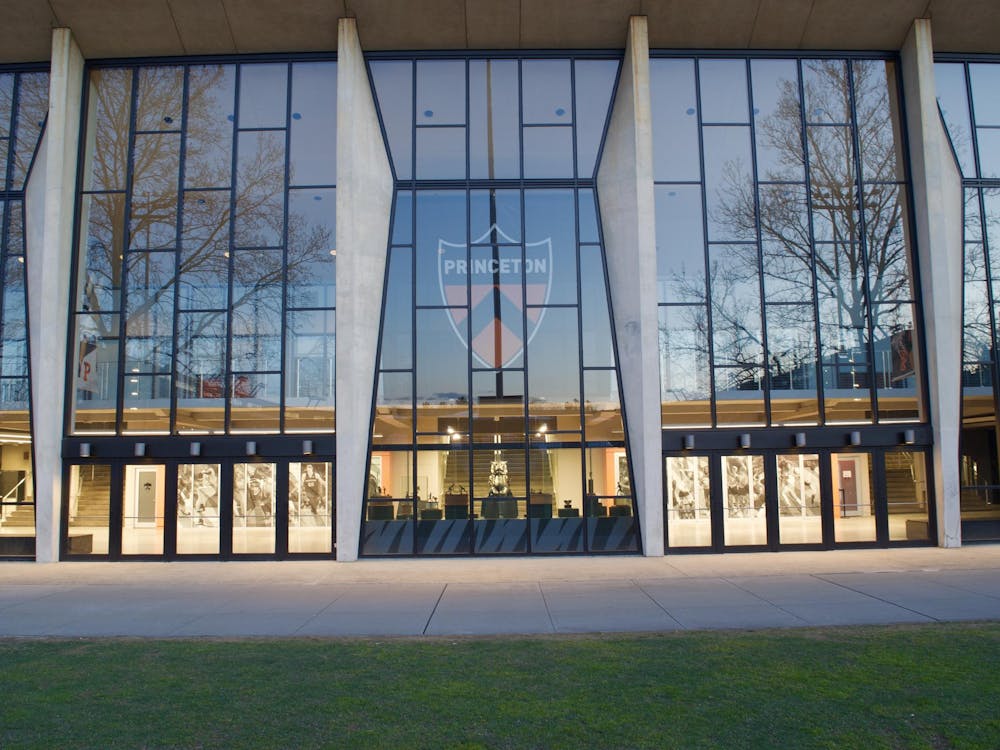Nicolette D’Angelo ’19 wants to show the relevance of antiquity to the modern world.
D’Angelo, who is from Hewitt, N.J., was recently awarded a Rhodes Scholarship, which provides full financial support for graduate study at the University of Oxford. She plans to pursue a M.St. in Classics.
As a Classics concentrator, translator, and poet, D’Angelo asks questions about the modern world through engagement with classic texts like Homer’s “Odyssey” and Ovid’s “Metamorphoses.”
“Classics are a mirror we can hold up to our own society,” D’Angelo said.
Classics is often considered a subject for the “ivory tower,” D’Angelo explained, referring to the field’s reputation as esoteric, irrelevant, or obscure. One of the reasons she applied for the scholarship was to expose the continued importance of the classics to everyday life.
“I would be using the Rhodes to ‘fight the world’s fight,’” D’Angelo said, quoting the informal motto of the Rhodes Scholars.
D’Angelo explained that she will have to defend the relevance of classics and to always keep the broader impacts of the field in mind.
In one of her junior papers, D’Angelo worked on a translation of Euripides’ “The Suppliants,” a play about grieving mothers who beg Theseus, an Athenian king, for burial of their children.
She continues to study women and antiquity in her thesis, where she focuses on the evolution of the concept of hysteria from Hippocrates to Freud. Hysteria, once considered “a mysterious affliction of women,” inspired beliefs that female bodies were inherently dysfunctional.
In her thesis, D’Angelo disputes the commonly-held notion of hysteria as a diagnosis since the time of Hippocrates. Concurrently, she argues for the existence of a cultural continuity, since ancient times, of pathologizing natural processes of the female body. Ancient medical writers saw the female body as inherently dangerous, likening the uterus to a “dog with rabies” or a “poisonous spider.”
By considering the ways in which idioms are interpreted, D’Angelo hopes to change people’s ways of thinking about women, their bodies, and their place in society.
D’Angelo’s thesis advisor, Melissa Haynes, said that D’Angelo’s work will help people better understand the differences and connections between ancient texts on women’s health and people’s current attitudes about women’s bodies.

D’Angelo believes that marginalized voices can reveal more about texts that have been interpreted and reinterpreted for centuries. Her work is part of a movement to reimagine the classics in the eyes of women, minorities, and other groups traditionally left out of the conversation — Emily Wilson’s recent translation of the “Odyssey,” for example, is a notable contribution to the movement.
“I think the classics should be retranslated and reimagined and re-interrogated,” D’Angelo said. “History should be rewritten for every generation.”
D’Angelo herself started as an “outsider” in the field. She did not take any Latin or Greek classes in high school and began her studies with the Humanities sequence — an intensive year-long introduction to the Western tradition — in her first year at the University. While reading texts for the course, she found the tension in the classics between the relatable and the unexplainable intriguing.
“The synergy between the nearness and the strangeness, existing at the same time, was really exciting,” D’Angelo said.
With the support of her professors, she applied and attended a CUNY Hunter College language intensive the summer after her first year. In the fall of her sophomore year, she travelled to Greece, where she saw the pages of the texts she had read the previous year come alive.
This past summer, D’Angelo travelled to Rome as an intern with the Paideia Institute, a nonprofit that promotes education in Latin and Greek.
The internship was a natural extension of her previous work tutoring underserved elementary students in Latin through Princeton Young Achievers. Along with other interns, she developed a Greek version of the Paideia program for middle schoolers to use. The curriculum has since been picked up for use by organizations like the Onassis Foundation.
D’Angelo aims to teach in such a way that encourages her students to bring personal experiences to the classroom and ultimately help her learn as well.
“I don’t think this is the model which most people primarily associate with Latin or Greek instruction today,” said D’Angelo.
According to D’Angelo, traditional ways of teaching — writing down noun and verb forms, or rote memorization — is “not what inspires kids to have a lifelong love of learning.”
For D’Angelo, access to the classics for all ages and levels challenges the traditional notion of classics as a “finishing school” subject, available only to students from more elite backgrounds.
“I like being able to change the narrative of why people want to have classics in their lives,” D’Angelo said.
Aside from her work in the classics, D’Angelo is also pursuing certificates in gender and sexuality studies, humanistic studies, and creative writing.
Her creative writing thesis is a book-length poem that engages both the past and present, blending the classics with colloquial speech.
“The mix is electric,” creative writing professor Susan Wheeler, who serves as D’Angelo’s creative writing thesis advisor, said.
The piece examines how heroic struggles are often gendered, calling into question whose bodies matter, Wheeler said.
D’Angelo’s interest in blending the classics and poetry continues from work she did the summer after her sophomore year in 2017 with a grant from the Lewis Center for the Arts.
The project was a book of poetry works, a “vocal collage” that compiled interviews she did with patients at treatment centers for eating disorders.
The book raised questions about ideas of hospitality and the body. D’Angelo noticed that patients were in a state of flux, moving from place to place — just like Odysseus and his men moved from place to place in search of food and sustenance. D’Angelo also saw parallels between the anxiety of a changing body and the transformations depicted in “Metamorphoses.”
“The classics world gives me a rich tapestry of stories and images to combine with [the] rich set of personal experiences around eating and body image [that] I’ve been fortunate enough to hear about,” D’Angelo said.
D’Angelo’s love of literature and the classics extends to her extracurricular involvements: she is a writing center fellow and co-Editor-in-Chief of the Nassau Literary Review.
When she first joined the Literary Review, she was disappointed at the few public events the organization offered.
Wanting greater accessibility, she quickly discovered that it was essential to tune into the issues that people cared about.
For instance, to discuss concerns about prison reform, she and her fellow editors organized a conversation with A.M. Homes, author and lecturer in creative writing at the University, about incarceration and the arts.
Such conversations, D’Angelo said, encourage literary activism and a human connection.
“I’m a firm believer that creative approaches can help us see new sides of any issue,” D’Angelo said.
Wheeler and Haynes reflected positively upon their experience working with D’Angelo as she graduates and continues her education.
“There is a wonderful urgency to Nicolette's interest in her own work and the importance she sees for clarifying our ‘inheritances’ from the classical past,” Haynes said.
“She has a really wonderful imagination, as well as an acute feel for language,” Wheeler added.
Wheeler noted that she hopes to be reading D’Angelo 20 years from now.
D’Angelo has now joined a diverse group of Rhodes Scholars: this year, 21 of the 32 are female, and many come from immigrant, first-generation backgrounds.
D’Angelo hopes to continue sharing the relevance of the classics with this diverse cohort.
“Their input, their presence, and their support will transform my scholarship in ways that I can’t anticipate,” D’Angelo said. “And I’m so excited for that.”









